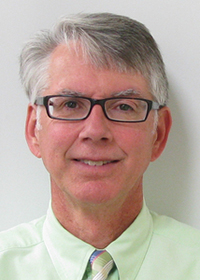
Utah public schools received Utah Comprehensive Accountibility System scores last week, the second type of state-wide assessment tests in Utah and the type by some educators over the new school grading system, according to Gary Seastrand, assistant director of the Center of the Improvement of Teacher Education and Schooling at BYU.
“There’s a lot of conversation in the schools about the letter grading in the schools and that it doesn’t have much meaning for the schools,” said Seastrand. “Just based on feedback from schools, the UCAS system is highly preferred.”
UCAS was implemented last year and is the system Utah uses as the federal accountability system. After state legislature passed the school grading system this year, there has been much debate among government officials over which system is better.
UCAS gives schools information on student achievement, state averages (where schools fall in comparison to other public schools in the state), information on minority populations and poverty levels. According to Seastrand, the new school grading system does not give much information other than a letter grade.
Both school accountability systems take into account the Criterion Referenced Tests, which are administered at the end of every school year. These tests help teachers understand how much students have learned and what percentage of students have mastered state standards.
The School of Education at BYU does not emphasize state-wide assessments in its curriculum, according to Seastrand. He said the assessments are useful but not as important as other types of assessments. The most useful assessments for teachers are formative assessments.
“Formative assessments provide ongoing feedback to teachers regarding how the students are performing and how they can help them learn more,” said Pamela Hallam, associate professor in the Department of Educational Leadership and Foundations at BYU.
Formative assessments are never reported on a state level. They are done in classrooms on a daily basis. Teams of teachers will discuss formative assessments within individual schools to see how students are comparing to their classmates. Not only do these assessments help students, they help teachers improve their teaching styles, Hallam said.
“If one teacher’s students performed better on a certain concept, then that teacher shares the instructional strategies used to teach that concept,” Hallam said.
The School of Education at BYU teaches future educators how to monitor student progress and intervene when necessary. Teachers are responsible to have their students show proficiency in testing, but they also have to know where students need help to learn, Seastrand said.




